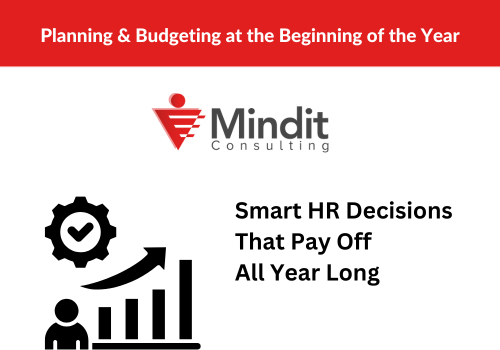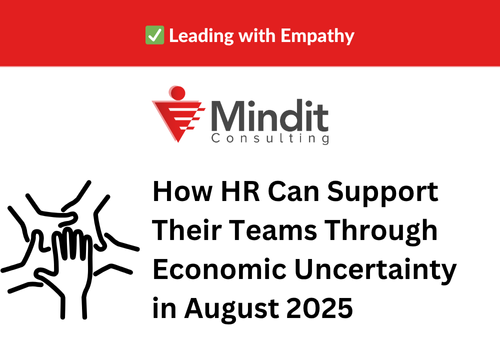The world of work is changing — and so is the way we talk about money.
In 2026, the EU Pay Transparency Directive (2023/970) will officially come into effect, introducing a new standard for fairness across Europe.
But beyond compliance and regulation, this is something deeper:
It’s a cultural shift toward trust, equality, and accountability.
It’s the beginning of a more honest conversation between employers and employees — one that redefines what fairness looks like in modern organizations.
At Mindit Consulting, we see this moment as more than a legal milestone. It’s an opportunity for HR professionals in Romania to lead with integrity and build workplaces that truly reflect their values.
🔍 A Shift From Secrecy to Clarity
For decades, pay has been a topic wrapped in silence — whispered, assumed, often misunderstood. The new directive changes that. It gives everyone in the workplace — employers, recruiters, and candidates alike — a common ground built on transparency.
Here’s how this new paradigm unfolds:
🌱 In Recruitment: Transparency From the Start
Gone are the days when recruiters asked, “What was your last salary?”
That question, often meant to assess expectations, quietly perpetuated old inequalities.
From now on, candidates will receive clear, upfront information about salary ranges before even stepping into an interview.
It’s a simple but powerful change — it saves time, sets expectations right, and builds trust before day one.
🌿 For Employees: The Right to Know and Grow
A new fundamental right is born — the right to information.
Every employee will have access to fair comparisons between their pay and the average for colleagues performing work of equal value.
This is not about competition — it’s about empowerment.
It helps employees understand their value, advocate for fairness, and trust that their contribution is recognized.
🌾 For Companies: From Compliance to Culture
Yes, the challenge is real. Salary transparency means rethinking evaluation systems, aligning pay structures, and documenting decisions carefully.
But the reward is worth it.
Organizations that embrace this shift will stand out in a crowded market — not just as employers of choice, but as employers of trust.
They’ll move from subjective comparisons (“job titles”) to objective evaluations — based on competencies, effort, and responsibility.
It’s a deeper, fairer way of defining value — and it makes companies stronger from within.
🤝 The Strategic Benefits of Transparency
Seeing this directive only as a risk means missing the bigger picture.
Transparency is not just about compliance — it’s a competitive advantage.
✨ It attracts and retains top talent.
People are naturally drawn to organizations that are fair, open, and clear about expectations.
✨ It strengthens employer branding.
Pay equity becomes part of your company’s DNA — a story of fairness that resonates with both employees and customers.
✨ It builds a culture of trust.
When salary secrecy disappears, trust grows. Collaboration improves. Morale rises. And the company becomes a place where people want to stay.
🧭 How HR Professionals Can Prepare — Starting Now
The 2026 deadline might seem far away, but transformation takes time.
Here’s how you can begin:
- Audit your pay structures.
Identify where gaps exist and whether they’re objectively justified.
Use this data as the foundation for transparency. - Define your compensation philosophy.
Clarify how salaries are determined — by skills, performance, or market benchmarks — and communicate it internally. - Create transparent salary bands.
Document pay ranges and progression criteria. Make them understandable and accessible. - Train managers for meaningful conversations.
Pay discussions can be sensitive. Help leaders talk about them with empathy and confidence. - Integrate verified data into hiring.
Using background screening services, you ensure every compensation decision rests on verified credentials and true experience — not assumptions.
Transparency starts with truth.
🌟 Why Acting Early Matters
Waiting until 2026 is no longer a strategy — it’s a risk.
Start now: review your internal equity, refine your policies, and prepare your leaders for this new era of openness.
Companies that begin today won’t just comply with the directive — they’ll lead the transformation.
They’ll stand as examples of fairness in a market that deeply needs it.
🌼 Final Thoughts
Salary transparency is not just about publishing numbers — it’s about redefining relationships.
It’s about creating workplaces where honesty replaces assumptions, where value is visible, and where trust becomes a shared language.
At Mindit Consulting, we believe transparency and truth go hand in hand.
Our background screening services help companies verify, protect, and strengthen the foundations of trust — because every fair decision begins with accurate information.
2026 will be the year of transparency.
Let’s make it the year of trust.


